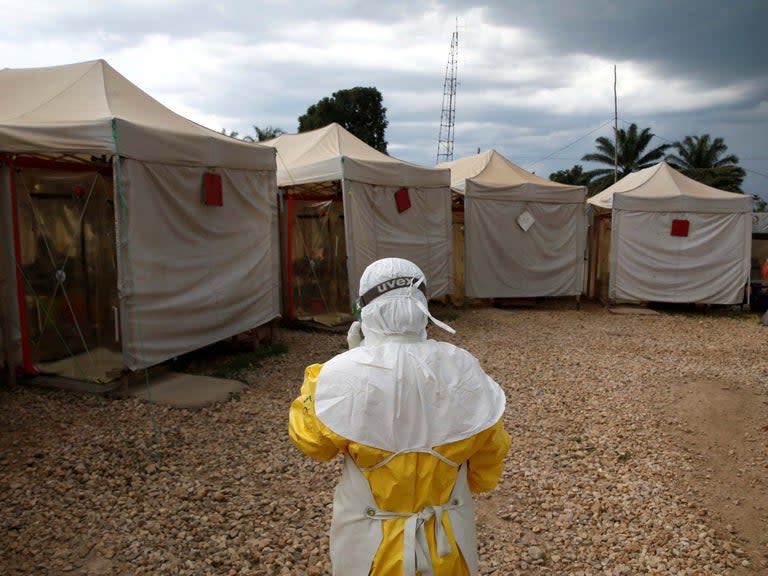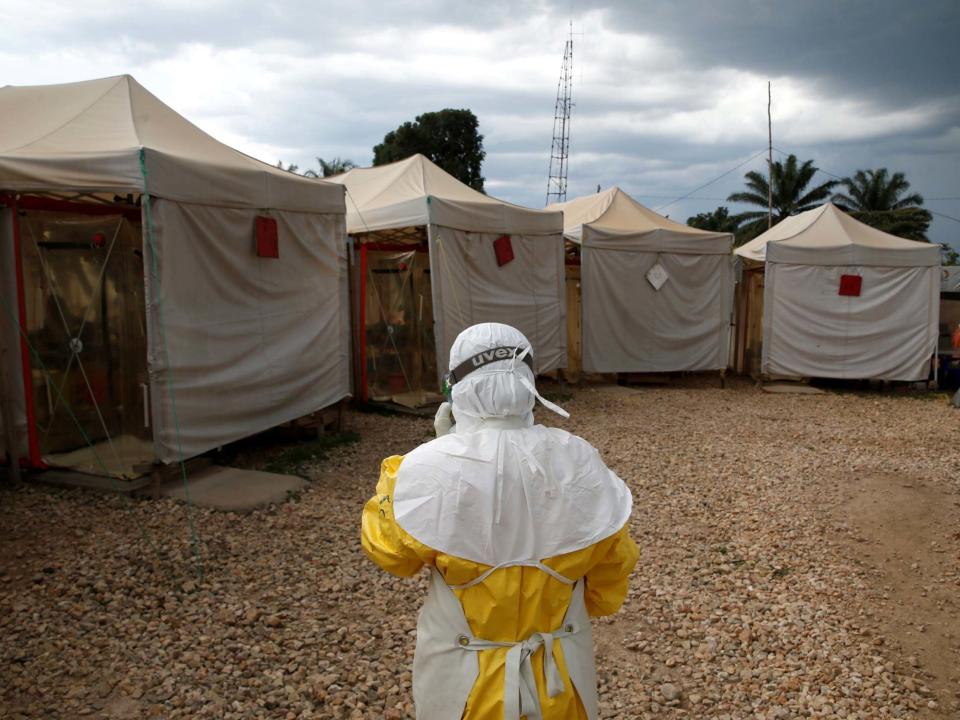First Ebola case discovered in DRC's Goma city, home to 2 million people
The first case of Ebola in the Democratic Republic of Congo city of Goma has been discovered.
Goma, a lakeside city with a population of two million people, is close to the Rwanda border – more than 354 km (220 miles) south of where the second-largest Ebola outbreak was first detected a year ago.
The haemorrhagic fever has gradually spread south, infecting almost 2,500 people and killing more than 1,600.
The Ministry of Health said the person with the confirmed case was a pastor who became infected during a visit to the city of Butembo, where he interacted with Ebola patients.
He first developed symptoms last week before taking a bus to Goma on Friday.
When he arrived in Goma on Sunday he went to a clinic where he tested positive for Ebola.
Officials have now located the bus driver and 18 other passengers, who will all be vaccinated on Monday.
Tedros Adhanom Ghebreyesus, director general of the World Health Organisation, said that while the case was “not welcome news”, it was something the organisation “had long anticipated” and prepared for.
He said in a tweet: “An Ebola treatment centre in Goma … has been operational since February, and the person is now receiving care there.
“As part of the preparedness, 3,000 health workers have been vaccinated in this city alone.”
However, experts have raised concerns that the deadly disease could spread faster in such a densely populated area.
Academic and author Laurie Garrett, an expert on infectious diseases, said the case could be a “dangerous turning point” in the epidemic.
She tweeted: “The arrival of Ebola to the large, intl trading city of Goma is a dangerous turning point in the DRC Ebola epidemic.
“We can hope/pray it’s an isolated case. But everybody in the Ebola fight has been dreading this moment.”
Ronald Klain, who served as Barack Obama’s Ebola czar, said: “Just one case might be just one case. But, if this is multiple cases in Goma, that is a turning point.”
Goma has been preparing for the arrival of Ebola for a year, setting up hand-washing stations and making sure mototaxi drivers do not share helmets.
But in more rural areas, where containment efforts have been hindered by mistrust of health officials and militia violence, the virus has been hard to contain and the number of new cases has spiked.
Ebola causes diarrhoea, vomiting and haemorrhagic fever and can be spread through bodily fluids.
An epidemic between 2013 and 2016 killed more than 11,300 people in West Africa.
Reuters contributed to this report.


